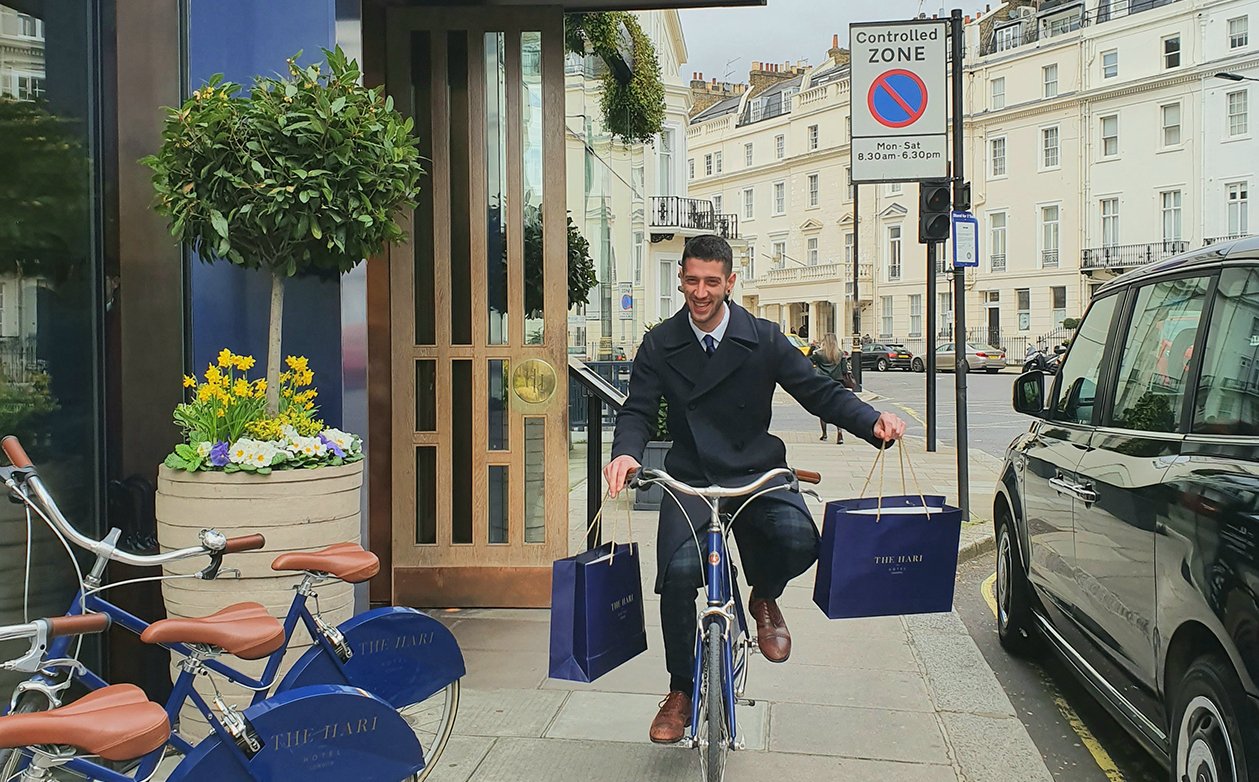Like Americans in all walks of life, Paul Polizzotto is reeling from the coronavirus fallout, but he’s also inspired, and part of a cadre of entrepreneurs stepping up to help out their industries and their communities.
“It’s stunning, what we’re faced with. Fortunately, we have nonprofit organizations on the ground. We need to rally support and bring resources to them immediately,” says Polizzotto, whose company Givewith partners with SAP Ariba to add social impact to business transactions for roughly 4.4 million suppliers and buyers, supporting organizations such as the Humane Society, Black Girls Code and City Year. “Corporations are going to have to step up to address the resources that will be needed during the crisis, post-crisis and maybe going forward indefinitely. These are issues in real time.”
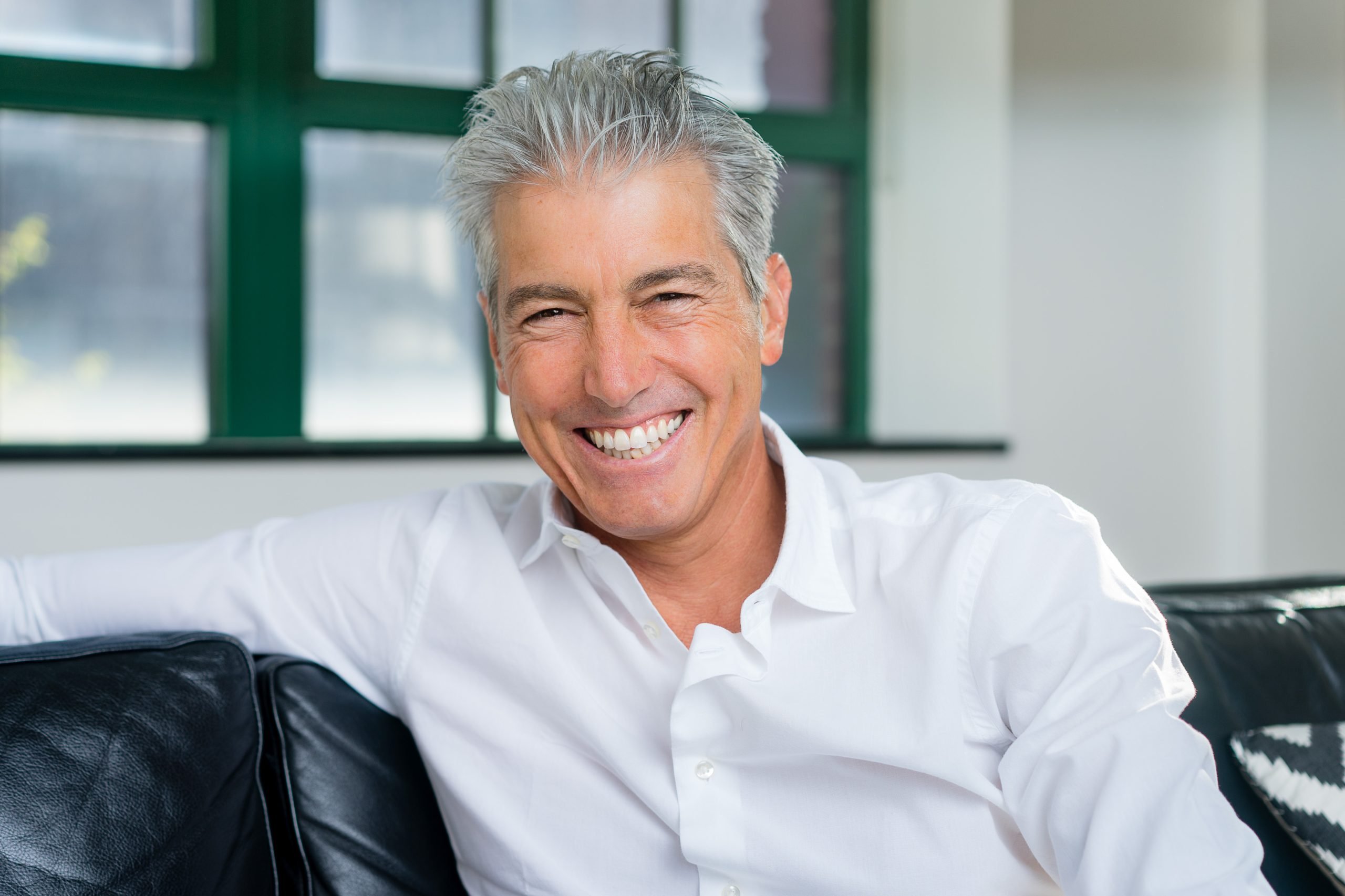
Among the organizations Givewith is supporting for coronavirus-specific initiatives: Share Our Strength, which is working with government agencies to address nutritional needs of low-income families; Meals on Wheels America, which is providing senior citizens with meals and safety checks; and First Book, which provides reading materials to children in underserved communities. The organization is also aiming to distribute an additional six million books to children in low income areas.

“This crisis exacerbates the inequities that already exist. Children in affluent schools will stay at home and continue their schoolwork via online curriculum and home libraries, but children from low-income families often don’t have access to the internet or books in their homes,” says First Book’s CEO Kyle Zimmer. “The educators who serve them are doing everything they can to create remote learning programs, even though they don’t have the resources for it. We need to do everything we can to support them with books and resources.”
The food industry, which is itself in desperate straits, is strongly contributing to those in need. Salad company Sweetgreen is providing free, fresh meals to hospital workers at centers including the Veterans Affairs Medical Center and Children’s Hospital in Los Angeles and Lenox Health and Harlem Hospital in New York. Celebrated philanthropic chef José Andrés is turning his Washington, D.C. and New York City restaurants into community food kitchens, offering affordable meals between 12 p.m. and 5 p.m.
In Los Angeles and the San Francisco area, healthy corporate caterer Nybll is pivoting dramatically from its origins feeding workers at Amazon and Netflix to expanding its already existing philanthropic network.
“Because of the school closures, businesses working from home and now the recent shelter in place [order], access to healthy food across all economic strata are impacted. Those living on the fringe are sitting in a catastrophic place and are more vulnerable than ever,” says Kristen Thibeault, founder of Nybll and the Patra Project, a nonprofit fighting food inequality in inner city neighborhoods. “Despite losing all of our corporate business, $1.4 million monthly, we have kept our kitchens open and our team is volunteering to feed children and families.”

Under her leadership, the company is producing more than 500 meals every day, with workers she’s had to furlough even volunteering to feed children and families at shelters and in homeless encampments.
“It has been a true testament to the goodness of people,” she says. “We have also opened our doors to feed all of our 130 employees plus their families.”
In Dallas, the Biscuit Bar bakery is offering free lunches every day until school resumes to students who normally depend on school meals to eat, and New York City’s vegan restaurant group Derossi Global is providing free vegan lunches for school children.
In Manhattan’s Chelsea neighborhood, fifth-generation fish monger Louis Rozzo, who normally sells only to restaurants like Le Bernardin and Nobu, is making his coveted stock accessible, at below wholesale prices, to walk-in customers.
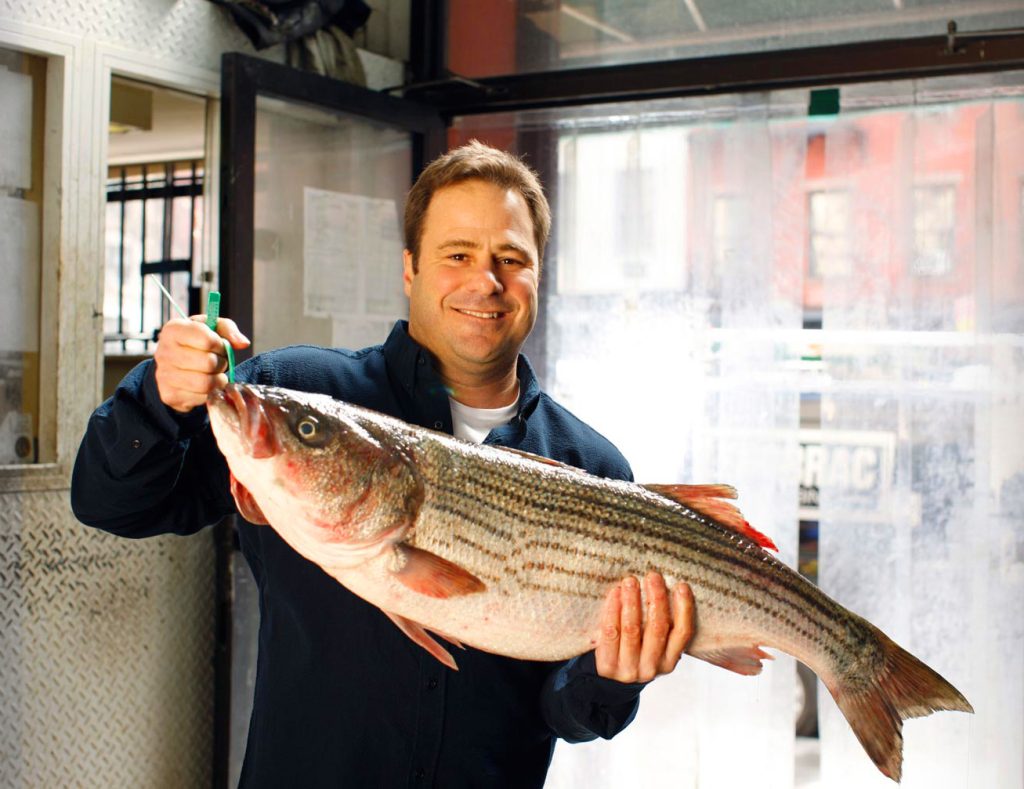
“I just want to give back to the neighborhood,” says Rozzo, who says he’ll maintain his pop-up store front for at least a month, selling treats like fresh lobster for $7.50 a pound and offering fish that can be frozen for up to six months.
Tilit, the chef’s apron company, is advocating for the food industry in its weekly podcasts, inviting chefs and restaurateurs to share coping strategies and lobbying efforts.
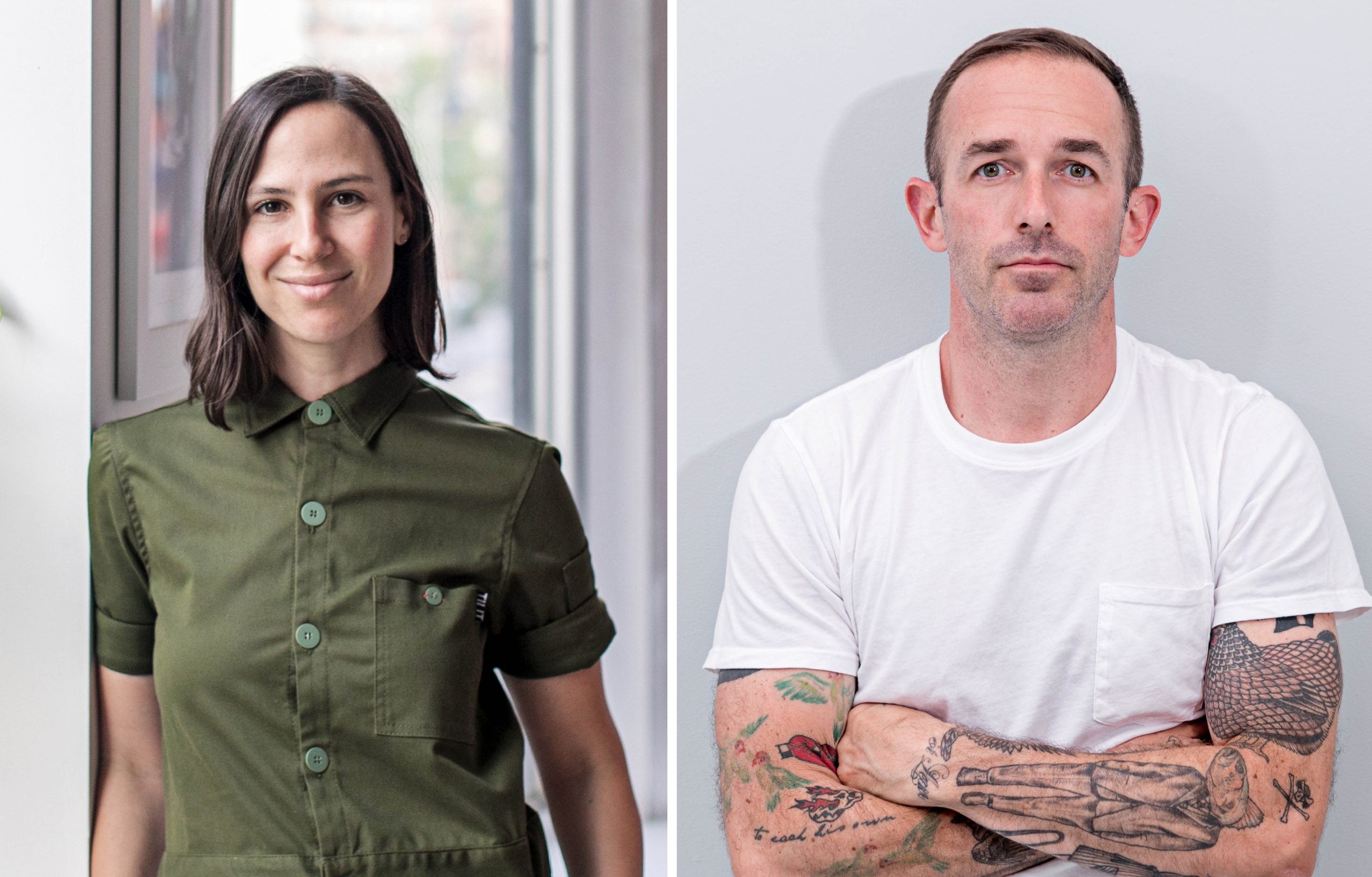
“There are a ton of businesses like ours, tons of restaurants and 15-plus million people employed by restaurants. If you think of small businesses leading into them, there are also farmers, specialty food purveyors, florists, ice purveyors, ceramicists,” says Alex McCrery, who runs Tilit with his wife Jenny Goodman. “There are so many things that funnel into this industry and are crazy impacted. These are small businesses that can’t wait six months for a loan to be processed. There’s a very small window.”
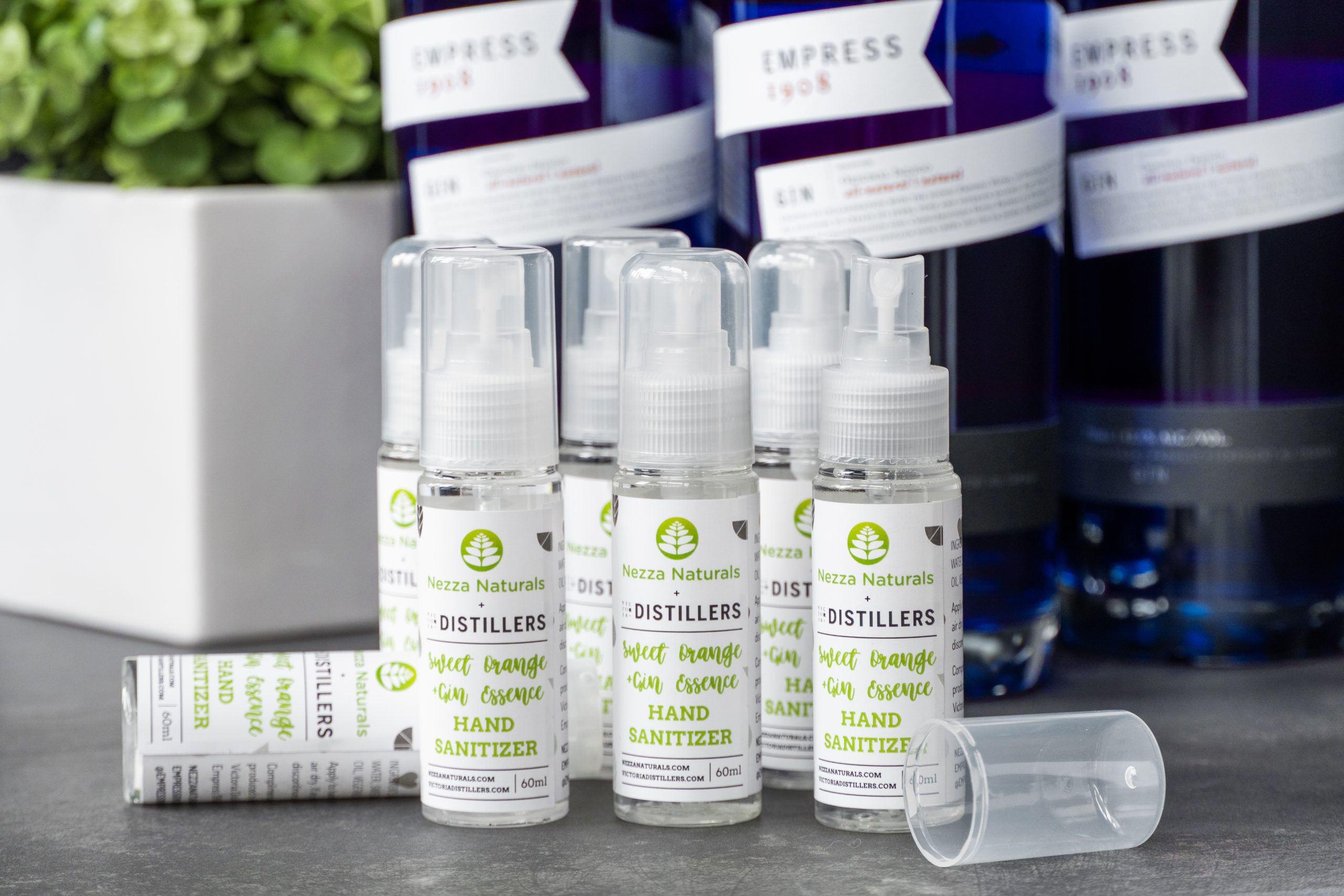
The spirits industry is helping out, too. In Victoria, Canada, Empress 1908 Gin is partnering with local beauty company Nezza Naturals to make hand sanitizer, distributing it to clinics, doctor’s offices, hospices, food banks, shelters and grocery stores.
Other companies in self-care and hygiene are also working to share their largesse.
Burst Oral Care has pledged to contribute a portion of sales, up to $20,000, to the medical organization Direct Relief, which provides medical supplies to health care workers. The Body Shop has donated 30,000 units of cleansing products to local shelters and senior communities throughout the United States and Canada.
Even for those fortunate enough to be in good physical health, as normal routines continue to break down, mental stimulation remains critical. The online reading subscription service Scribd is offering free access to its more than one million e-books, audiobooks and magazines for 30 days.
“Reading can offer incredible comfort,” says CEO Trip Adler. “Our goal is simply to ensure everyone has access to their favorite books, authors and quality content as we settle into our new normal for the next few weeks.”
Businesses are also extending to their neighbors the comforts of helping with small errands and making personal connections.
The Hari, a five-star hotel in London’s Belgravia neighborhood, is offering locals full use of the hotel concierge service. Taking requests by Instagram DM or phone call, the Hari staff is picking up and delivering groceries, pharmacy supplies, mailing letters and even making calls for small talk—gestures that may well have seemed bizarre two weeks ago, but today inspire gratitude, providing an antidote to the loneliness implicit in quarantine.
If those needs are now being felt among the privileged, they are infinitely more pronounced, and dire, for those who were already vulnerable.
“You’re seeing now how fragile our existence is, how governments and nonprofits are going to need new sources of funding and support. I don’t take satisfaction in this, but I think that Givewith will be more important than ever,” says Polizzotto, whose social enterprises have directed more than $100 million in funding and resources to environmental, education and community health and wellness programs. “At a time of government failure, private enterprise needs to lead. We must focus on how we live more sustainably and more equitably, as if our lives depend on it—because they do.”

